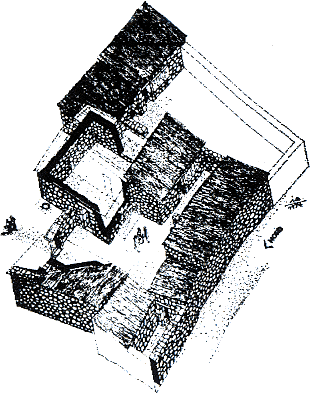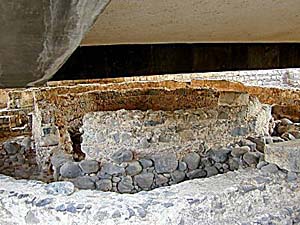Notes for Epiphany 5
Mood:
 not sure
Topic: Sermon Staging Area
not sure
Topic: Sermon Staging Area
Motif
> "How the Grinch Stole Christmas": Will they still celebrate Christmas when all the gifts are gone?
Dilemma
> You've struggled with this question too. No, the Grinch has never slipped into your house, but ...
> ... Will I still trust in God when I'm not getting anything good out of it?
---> There will come a time in every person's life when, as far as you can tell, you're not getting anything good out of your faith in God.
---> PROBLEM: Often, when we advertise Christian faith to the world, we tell about all the wonderful things you'll get out of it.
-----> The world is smart enough to see that not everything is positive and perfect---not even for Christians.
-----> Christians experience tragedy, pain, and sickness in the same amounts as the rest of the world. And the death rate of Christians? So far, every person who has become a Christian has eventually died!
> Recently, asked some people on the street about this: "Why do even people who believe in God experience tragedy?" [[[VIDEO]]]
---> Caused by karma/caused by sin/caused by chance [[[KARMA: Doesn't see that there is more good than evil/CHOICES: {Job} Partly true; none is sinless---but why isn't it proportionate? Assumes God directly causes/CHANCE: Partly true; but, if chance is the final word, life is a series of random events, with no guaranteed outcome]]]
---> God has set up the world so sin and stupid choices have consequences: SO, sometimes, it's sin/God has created a world in which nature operates freely: SO, sometimes, things happen and God doesn't intervene./In such a world, you'll eventually face the question: "Will I still trust God even when I get nothing good out of it?"
> That's how Israelites felt in Isaiah 40.
TEXT
> Read Isaiah 40:12-31 and pray.
> Israel: Nation that God chose so that he could show his power to the world ... turned them from slaves to a mighty nation ... called him, "Yahweh"/"I AM."
> This passage is written from the perspective of the exile---the time when the country of Babylon removed the Israelites from their land.
---> Some scholars believe that Isaiah wrote it, looking FORWARD to the exile (around 700 BC); others believe that one of Isaiah's followers wrote it DURING the exile (550 BC).
---> Ultimately, doesn't matter: It is part of the record of God's dealings with humanity, and it is true.
> [Israelites in Babylon/assumed it was because of sin/Many of them admitted, turned/"Now what?"]
> "If God doesn't come through for us, why trust him? If we don't get anything good out of following God, why follow?" Like what Grinch envisioned in Whoville:
If we don't receive the gifts we expected, why celebrate?> The prophet says the same sort of things that God said to Job: [Verses 12-13]
---> These people are homesick in Babylon, considering turning again to idols---and God wants to talk about the size of the oceans, the width of the sky, and the weight of the earth!
---> Why, when people are wondering ... , does God consistently direct their attention to nature? YOUR STRUGGLES ARE NOT THE FINAL WORD. [[[The earth was here long before you ever set foot on it, and it will most likely continue long after its dust and your body have mingled together in the sleep of death. The universe is vast and ancient, and we are ever so small. READ VV. 12-13.]]]
---> One of the great losses of spending so much time in cars, homes, buildings, enfolded in TVs and headphones is that we lost sight of how small we are.
---> Plus, if you look at universe honestly, you cannot deny that there is, here, imprint of power greater than eyes can see. [PSALM 19:1-2]
[[[THE LORD OF THE RINGS: "There are greater powers at work."]]]
> When we wonder, "Why serve God when I'm getting nothing good out of it?" ... we are assuming that the powers we see working are the only ones/when we look honestly at creation, we see that there are powers at work far greater than anything we can imagine. [[[Vv. 14-17]]]
> V. 18: "To whom can we compare?" Dangerous! For these people, there
is another option besides Yahweh---Marduk, god of Babylon.
---> So ... Vv. 21-22, 25-26: "I'm the one beyond it all!"
> Vv. 27-29: "How can you say that I'm not seeing your struggles? ... you're following me for nothing? I'm offering you power and strength!" >> "Yes! This is what we've been waiting for! Defeat our enemies!"
> V. 31: "I will give you power and strength to keep going."
---> Begins with "soaring," then running, then walking, then waiting: If God only gives us strength for the times that we're soaring and running, he wouldn't be giving us much---what he offers is the strength when all that we can do is to plod and to wait.
---> Maybe your entire Christian life is all soaring and running---if so, good for you ... go home. [You don't need what we have to offer here; this church is a place for people who struggle.]
---> If your life is anything like mine, your spirit spends far more time plodding and waiting than soaring and running.
---> This God gives us strength for the waiting, power for the plodding, and grace for those few moments when we find the wings to fly.
RESOLUTION
> So, what do you do when you're following God and you're getting nothing good out of it? CHECK YOUR DEFINITION OF "GOOD."
---> Our definition of "good": "What works according to my standards---what makes my life easier"---the soaring and the running.
---> That's not necessarily God's definition of "good" ... God offers a greater goodness ... in every circumstance, at the very least, he gives the capacity to keep walking and waiting ... any run-of-the-mill God can be there for you when you're soaring---it takes a truly great God to be there when all you can do is plod.
> Will you still trust God when you're getting nothing good out of it? That time will never come---because he always, at least, gives what you need to wait on his power.
> Why can God always give the ability to keep going? Because there was a time that God himself could do nothing more than just keep going. [["If there is any other way..."/Up Calvary, he wasn't soaring or skipping---it was all that he could do simply to keep going/There was a time when, from human perspective, God in human flesh was getting nothing good from his own plan/But he kept going.]]
APPLICATION
> Why are you serving God?
---> If it's only to get more things in this present life, you probably won't.
---> If it's just to skip Hell in the next life, you probably won't either.
---> God longs for you to serve him not for what you may get out of it but because you truly trust that---whatever you get, good or bad, in this life or the next---his way is best ... because you love his way.
> What will you do when it feels like you're getting nothing good out of God's plan?
---> He will always give you the strength to wait ... so don't give up, keep trusting that your wings are on their way.
> [[[BOWLERS OR TRAPEZE ARTISTS]]]
> Prayer of Merton
Posted by timothypauljones
at 10:49 AM CST
Updated: Wednesday, 1 February 2006 4:44 PM CST





